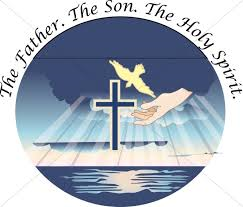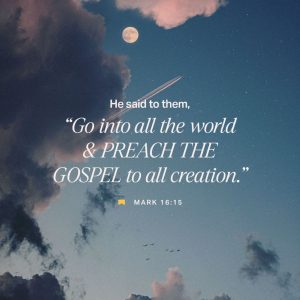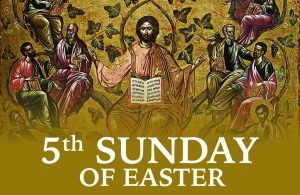On this, the Solemnity of the Holy Trinity, we celebrate the Church’s understanding of who God is: three unique, equal, divine persons in one God. It is a celebration of our lived faith experience that we attempt to put into words. We turn to the Scripture writers for a fuller understanding of this experience and for the ability to share the experience of God in our own lives. I like Bishop Barron’s description, “The love that God the Father and the Son breathe back and forth is the Holy Spirit, the life of the church.”
But, nowhere in Scripture will you find a specific teaching of the Trinity. However, we do find many places where the biblical experience of God is so rich that it cannot be encapsulated in a single word. Jesus is the visible icon (as it were) of the invisible God, making the mystery of God tangible to us. It is important that we believers have a welcoming attitude to the triune presence of God, so we are ready whenever, and through whomever, God chooses to continue to be revealed. In this way we will be ready to listen to and become involved in that dialogue. Without the continued experience of Father, Son, and Spirit (or some may choose to say: Creator, Savior and Spirit) the doctrine ceases to be a lived experience. But, if we expect today’s readings to give a clear presentation of the doctrine of the Blessed Trinity, that simply will not be the case. Ours is a God so generous… who loves us so much, that this whole world was created for us and continues to gift to us the gift of Self through the appearance of bread and wine. Here is a God, generosity personified, who loves us beyond our wildest imaginings.
God wants us to discover this Love and celebrate it. The fact is: God wants to be found and is constantly calling out to us – but not necessarily with words. He gives us so many opportunities – so many times when we travel through even the darkest tunnels of our lives and then come out the other side to encounter, unexpectedly, something surprisingly, great beauty and holiness. As I came through the connector this past week, I found myself surprised and confounded by a glimpse of an awesome glorious dawn! The words of Sirach spring to mind: “As the rising sun is clear to all! How beautiful are all God’s works! Even to the spark of a fleeting vision.”
As long as we have our feet planted on “this side of the grass” it makes sense that we might not be able to completely understand how something can be “one” and “three” at the same time. We need symbols to help us delve deeper and deeper into the mystery of the Trinity e.g. St. Patrick’s shamrock or three-leafed clover … three leaves, one stem. Or consider the egg you might have for breakfast: yolk, white and shell – three parts, one egg. Or we might’ve heard the Trinity compared to an Apple…. ONE apple, three different parts: skin, flesh, and seed.
This is a feast, a solemnity beyond words. The Holy Trinity is a privilege and not merely a commemoration of a doctrine. Through the celebration the Trinity we enter into a communion of Persons who has loved us into being and continues to call us each day to a fuller experience, a deeper lived knowledge, of our Triune God.
~Reflection by Sister Roberta Bailey, OSB







